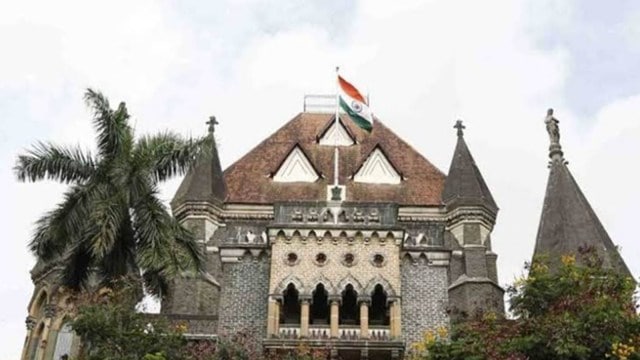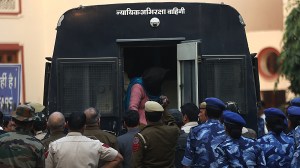How the HC deflated prosecution case against G N Saibaba, other accused
The bench observed that it was difficult to accept that they had conspired and made preparations to commit a terrorist act which was not spelt out in the case.
 It was prosecution's case that the accused undertook a preparatory act to commit a terrorist act punishable under Section 18 of UAPA.
It was prosecution's case that the accused undertook a preparatory act to commit a terrorist act punishable under Section 18 of UAPA.In its verdict acquitting former Delhi University professor G N Saibaba and five other accused in the alleged Maoist links case, the Nagpur bench of the Bombay High court deflated some of the serious charges levelled and material including electronic evidence produced against the accused by Maharashtra Police.
A division bench of Justices Vinay G Joshi and Valmiki SA Menezes observed that there was non-compliance with provisions of the Unlawful Activities (Prevention) Act pertaining to arrest, search and seizure of material in the case.
Difficult to accept accused committed terrorist act
The bench observed that it was difficult to accept that they had conspired and made preparations to commit a terrorist act which was not spelt out in the case.
It was prosecution’s case that the accused undertook a preparatory act to commit a terrorist act punishable under Section 18 of UAPA. However, the bench observed, “In order to attract the offence of conspiracy, besides vague allegations that they have conspired to wage war against the government or advocated arms struggle, there is no other material.”
No reason given to not arrest GN Saibaba for eight months since house search
The HC also noted that prosecution failed to give reason for not arresting GN Saibaba for eight months till May, 2014, while his house was searched in September 2013 and chargesheet was subsequently filed. “The reason for not arresting GN Saibaba for a considerable period despite knowing his alleged complexity and his place of abode has not been explained to our satisfaction,” the HC observed.
Case diary not maintained properly
The bench observed that procedural mandate under Section 172 of the Criminal Procedure Code (CrPC) was not followed in maintaining case diary despite serious offences levelled against the accused. It said that the investigating officer admitted that the case diary was neither properly paginated nor in bound condition, but was in loose condition kept in the file. The appellants had alleged fabrication of material by the police.
Electronic evidence could not prove case
The high court observed that “though great deal of electronic evidence was produced in the form of printed/hard copies of the content stored in digital form or in the nature of video footage, no evidence has been led by any witness identifying the various persons in these videos.” It held the said material need not be gone into as evidence in the case.
Videos of speeches where accused were present could not prove guilt
The HC also referred to videos of a 2012 rally at Hyderabad where speeches were made by certain persons and three accused including GN Saibaba were allegedly present. “The prosecution has not established that the speeches made in these videos are in the nature of support to any banned organisation under the UAPA,” it said. It added that mere presence of three accused including GN Saibaba in the said videos by itself would not make out any case for the prosecution.
Mere possession of literature sympathising with Maoist philosophy not an offence under UAPA
The HC also held that the literature contained in the hard disk allegedly seized from the house of Saibaba would not constitute an offence under the UAPA. It noted that the documents seized related to the period from 2006 to 2012, which was over one and seven months prior to registration of FIR. The HC said the documents would perhaps demonstrate that the accused were sympathisers of Maoist philosophy or sympathised with the cause of certain tribal groups or marginalised. Mere possession of such literature, having a particular political and social philosophy by itself is not contemplated as an offence under the UAPA,” it held.
Merely downloading Naxal material wouldn’t constitute offence unless specific evidence provided
The HC observed that it is a “common knowledge that one can access a huge amount of information from the website of Communist or Naxal philosophy, their activities including videos and video footage of even violent nature.”
Therefore, it added, “Merely because a citizen downloads this material or even sympathizes with the philosophy, would itself not be an offence unless there is specific evidence led by the prosecution to connect an active role shown by the accused with particular incidents of violence and terrorism.”







